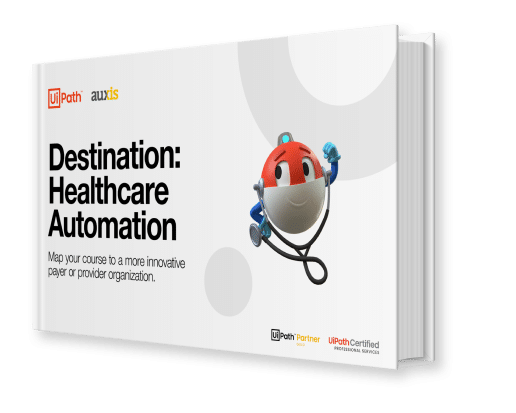In brief:
- Macroeconomic conditions have nearly half of U.S. hospitals facing negative margins, while labor shortages and inefficient processes slow revenue cycle management activities.
- The rise of cloud-based, geographically close outsourcing in locations with highly educated populations has made healthcare organizations more comfortable outsourcing judgment-intensive processes.
- As bottom-line pressures mount, nearshoring revenue cycle management functions helps healthcare companies maintain their own wellness.
Strategic revenue cycle management (RCM) is mission-critical to help healthcare organizations maintain their own wellness, working to alleviate bottom-line pressures and secure proper reimbursement for their services.
But mounting pressures beyond healthcare enterprises’ control – combined with advancing technology and greater opportunities for collaboration and critical thinking through nearshoring – have healthcare companies increasingly looking to capture the benefits of outsourcing revenue cycle management activities.
Severe staff shortages, inflation, and rising healthcare costs have nearly half of U.S. hospitals grappling with negative margins this year, according to Everest Group’s 2023 RCM matrix assessment. Labor shortages are also impacting revenue collection, with nearly 25% of healthcare finance leaders saying they need to hire more than 20 additional employees to fully staff their revenue cycle management operations, according to the Healthcare Financial Management Association’s (FMA) 2022 Pulse Survey.
Meanwhile, the rise of cloud-based, geographically close outsourcing in locations with highly educated populations has made healthcare organizations more comfortable allowing third-party providers to perform the complex, judgment-intensive revenue cycle management process.
More than 60% of healthcare providers plan to outsource revenue cycle management tasks this year (RevCycleIntelligence report). Let’s examine the key benefits of outsourcing revenue cycle management for the healthcare industry:
1. Reduce rising healthcare costs
It’s no secret that the U.S. has the highest healthcare costs worldwide – and inflation has had a tremendous impact. The American Hospital Association reports a nearly 20% increase in hospital expenses between 2019 and 2022 amid surging costs for labor, drugs, supplies, equipment, and other resources.
Spending on non-core administrative processes like medical billing and insurance-related activities accounts for a quarter of national healthcare industry expenditures. Leveraging the resources, automation technology, and streamlined best practices of reputable outsourcing companies to perform this work enables healthcare organizations to significantly cut costs without impacting patient care.
As revenue cycle departments struggle to recruit staff, outsourcing also alleviates the significant expenses and hiring challenges stemming from labor shortages.
2. Improve efficiency and cash flow
Improving cash flow is the biggest priority for finance executives in today’s macroeconomic climate, states Everest Group’s Global CFO Survey.
But traditionally, RCM is a time-consuming process, fraught with errors, frustration, and complications. And many healthcare organizations lack the time or expertise to create streamlined, documented processes that drive prompt payment while mitigating inefficiency and risk.
Unresolved claim denials alone represent an average annual loss of $5 million for hospitals, according to a Journal of AHIMA (American Health Information Management Association) report. As bottom-line pressures mount, that’s up to 5% of net patient revenue.
Outsourcing revenue cycle management to a quality provider delivers instant access to the tools, best practices, and experience to achieve revenue cycle management optimization, reduce administrative burdens and errors, speed turnaround times, increase cash flow, and drive organizational success.
Amid ever-changing patient volumes and reimbursement models, exceptional outsourcing companies also offer the flexibility to scale RCM resources up and down – eliminating hiring headaches or the burden of under-utilized teams.
3. Access automation and data-driven decisions
As 70% of digital transformation efforts fail to deliver expected outcomes, quality outsourcers can help healthcare organizations achieve real-time business insights, operational efficiency, and cost savings through instant access to automation, AI, and analytics.
A Council for Affordable Quality Healthcare (CAQH) Index found that fully automating nine common transactions related to insurance verification, care authorization, submitting claims, and sending/receiving payments can save the U.S. healthcare system $16.3 billion.
For example, a fully automated claims status inquiry costs $11.71 less than the same manual transaction in the medical industry and $10.92 less in the dental industry. Extrapolating those savings over the number of times those transactions are performed daily creates the potential for significant savings.
Consider this: Auxis achieved a more than 20% reduction in average delivery time to patients for a leading medical supplier by automating RCM processes like insurance verification and prior authorization follow-ups. Besides improving speed to revenue, the Auxis solution created a valuable differentiator for the supplier in the rehabilitation market, where patients rely on access to products for their daily lifestyles.
4. Mitigate compliance burdens and risk
From HIPAA to medical coding standards, heavy regulations surround healthcare administrative processes. Errors like coding mistakes, filing incomplete claims, missed filing deadlines, and failure to verify insurance can have serious consequences – risking claim denials or fraud allegations that trigger reputational damage, fines, and even criminal penalties.
Medical billing errors occur in a whopping 80% of bills, according to a Physicians Practice report. Industry averages show that nearly 20% of claims are denied – and up to 60% of returned claims are never resubmitted, states the Journal of AHIMA report.
Outsourcing revenue cycle management to the right partner offers deep experience in navigating the complexities of healthcare regulations and policies. Quality providers maintain stringent compliance frameworks that ensure security, data privacy, and adherence to medical billing and coding guidelines.
They also alleviate risk by helping healthcare organizations follow best practices for compliance. For example, automation can catch coding errors by reviewing claims before submission.
5. Strengthen security amid surging cyber-attacks
The rise of cloud-based BPO was a key catalyst for outsourcing revenue cycle management tasks. It enables healthcare organizations to develop agile global delivery models with lower costs while ensuring sensitive patient information is protected with secure data access and storage.
But built-in cloud security is only a first step. With a virtual goldmine of data, healthcare ranks as the third-most targeted industry by cyber-attacks in 2023, according to a World Economic Forum (WEF) report.
Outsourcing RCM activities to a quality outsourcer delivers instant access to the best-in-class security products, governance, and best practices that many healthcare companies lack. An alarming 73% of healthcare providers store data on legacy systems, which are often rife with security gaps, the WEF report states.
For example, Auxis takes a stringent approach to security and HIPAA compliance, including:
- Adopting healthcare clients’ security processes, systems, and controls when robust measures are in place.
- Accessing client systems through a controlled connection like a VPN managed by the client.
- Storing data and documents in client-controlled locations, with no information stored locally.
- Implementing robust local infrastructure and access controls, with a SOC 1 Type 2 report for verification.
For clients requiring onsite teams, Auxis can implement a “clean room” in its service delivery centers, creating a secure, segregated space with controlled access and video surveillance monitoring. Data capture instruments like cell phones and even paper and pen are strictly prohibited. Computers are also locked down, ensuring users can only access client-managed sites and cannot print or connect storage devices.
These same controls are applied to remote teams, with high-performing security software managing connection and control of devices.

Why Auxis: Top-tier revenue cycle management talent in your time zone
The healthcare revenue cycle management outsourcing market is expected to grow rapidly as macroeconomic conditions demand cost-effective services.
But many healthcare organizations find that working with teams on the other side of the world complicates service delivery, with traditional offshore solutions struggling to provide the higher-level talent and cultural, language, and time zone similarities needed to support an advanced tier of healthcare processes.
Partnering with a quality nearshore provider in Latin America delivers agility, innovation, and highly skilled resources in your time zone – providing the collaboration and experience needed to understand the complexities of healthcare processes and design solutions tailor-made for success.
Interested in learning more about the benefits of outsourcing revenue cycle management to Latin America? Schedule a consultation with our nearshore Business Process Outsourcing (BPO) experts today! You can also read our blog for more BPO tips and strategies or read our case studies for nearshore BPO success stories.





